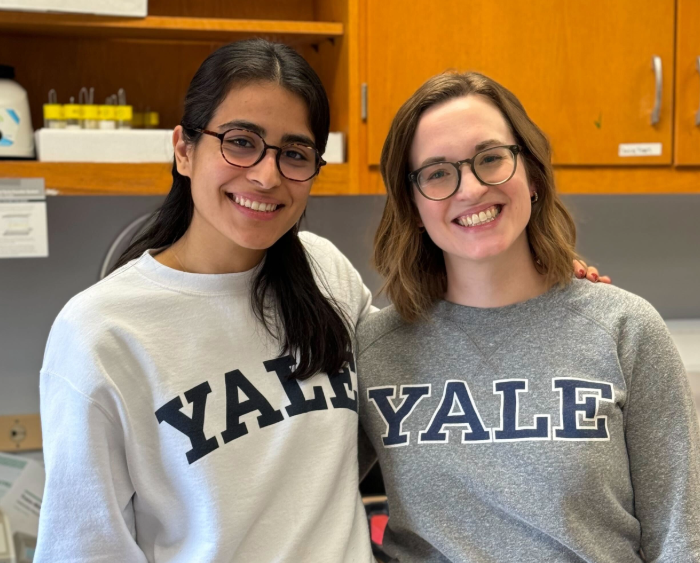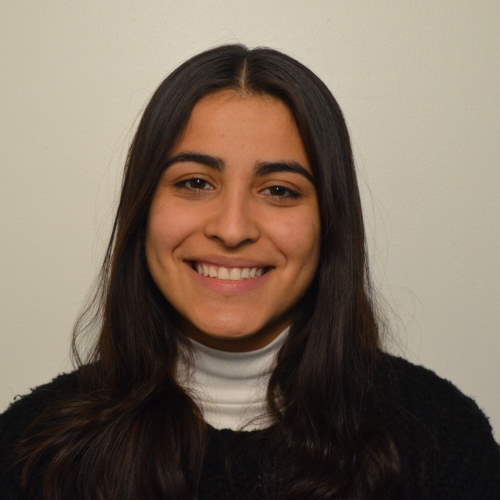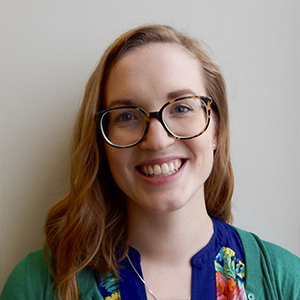Passing the torch: Majo Orozco Fuentes ’24 follows professor’s path to Yale PhD program
 Orozco Fuentes (left) and Delventhal (right)
Orozco Fuentes (left) and Delventhal (right)
Psychology and neuroscience double major Majo Orozco Fuentes '24 will be heading to Yale University this fall after being accepted into the PhD program in biological and biomedical sciences. Exactly 15 years prior, her mentor Assistant Professor of Biology Becky Delventhal attended the same program.
Orozco Fuentes was one of Delventhal's first Richter Scholars. Together, they studied the molecular mechanisms of injury-induced neurodegeneration and an National Science Foundation-funded project on the glial-specific function of a protein in the endoplasmic reticulum. The mentor and mentee sat down to ask each other some questions about their experiences, college, and the future.
 Orozco Fuentes: What's one thing you think I'll love about Yale?
Orozco Fuentes: What's one thing you think I'll love about Yale?
Delventhal: You're a very engaged student already, and I think you'll find many opportunities to stay involved in activities outside of the research lab at Yale because it's a larger institution. You'll get to connect with what you love about research while exploring new interests, such as science outreach and communication.
Orozco Fuentes: What should I be prepared for with this PhD program?
Delventhal: Be prepared for stuff that you've honestly already experienced in your research here at Lake Forest: lots of failure. Something that will feel different is the time scale it happens over. There is something people refer to as the fourth-year slump in your PhD where you have been working in the lab over three years and being done with your thesis feels miles away. In my experience, that was when I got some unexpected results that made me think everything I had done the last four years was wrong. Know you can finish, you have the capacity and the skillset, and it's normal to feel the ups and downs.
Orozco Fuentes: What is one thing you hope I will always remember from my time at Lake Forest?
Delventhal: I hope that you remember to trust yourself. I feel like that is something that I really try to reinforce with my students. You have a very strong sense of self and confidence in yourself already, and I encourage you not to forget that at a larger institution where there may be new pressures. You can listen to people's ideas and advice, but remember that you are empowered to make your own decisions and know what is best for you.
 Delventhal: What's something you learned at Lake Forest that you think you'll carry with you after graduation?
Delventhal: What's something you learned at Lake Forest that you think you'll carry with you after graduation?
Orozco Fuentes: Keeping an open mind and being open to learning from others. Lake Forest taught me to be flexible in my communication styles so I can work with a variety of different people and perspectives in and out of the classroom and lab.
Delventhal: You applied to this program while still enrolled at Lake Forest. What was the most challenging part of the application process?
Orozco Fuentes: I think for me, one of the first challenges was narrowing down what programs I wanted to apply to. Another big challenge was reflecting on four years here and being genuine and professional in my personal statements while tailoring them to each school. I have been in the lab for long enough that I have a history with failure and also a history of success and discovery, so I was able to bring that into my statements. It was interesting figuring out how to explain my research in a way that makes it connect to my life, but in a professional and sophisticated way.
Delventhal: I remember feeling self-conscious that I had gotten into Yale because I didn't want to be too braggy, and you had a different reaction to your acceptance. You have embraced that a little more, which I wish I had been able to do. What does going to Yale mean for you?
Orozco Fuentes: I am a first-generation student, and I am from Mexico. Research isn't really a career I knew you could do back home. I was set on going to medical school because I thought it was the only thing you could do with science. This is a big deal for my family, and I have been able to take pride in that.
Delventhal: I love that you are proud of that because you should be. Graduate programs like this are much more competitive for international students because there is such a limited number of slots. You are at a higher level and need to be an even more stellar applicant in order to get one of these spots.
Orozco Fuentes: That's true. For one of the programs I visited, I was the only international visitor being interviewed out of a pool of 200 applicants. It is more competitive than it would be for US citizens because we rely only on private training grants, not federal training grants. It was kind of intimidating because the other international students I met while applying to Yale had very similar profiles and experiences to me whereas normally, I would stand out for all the research I've done. At Yale there is a big international community, which made me feel like it was more like Lake Forest. At Yale I will get more of the specific support I need. Lake Forest College is a very international community, and I was worried about going to a place that wouldn't preserve that feeling.
Note: This interview has been edited for length and clarity.

